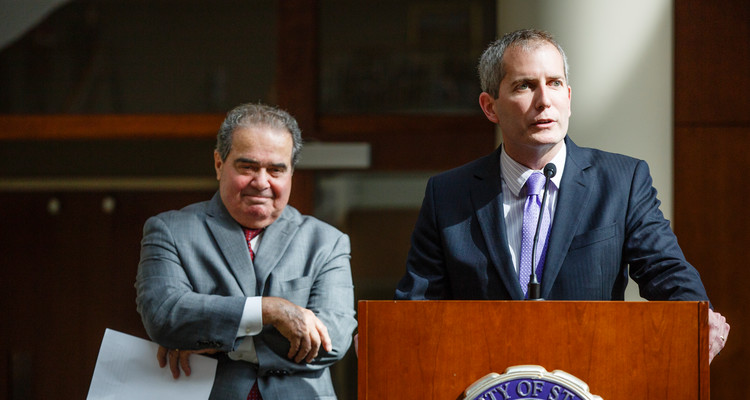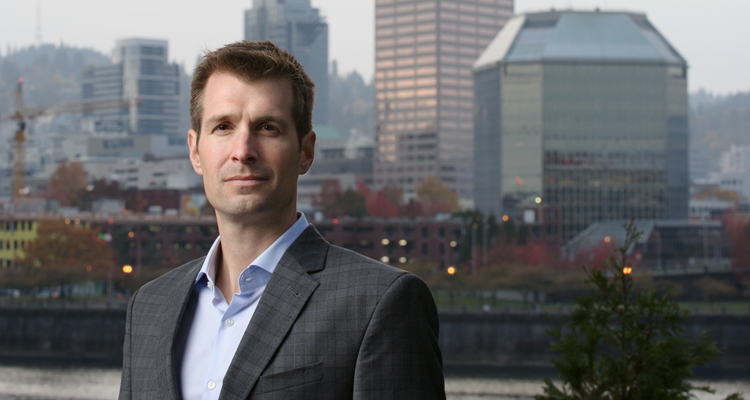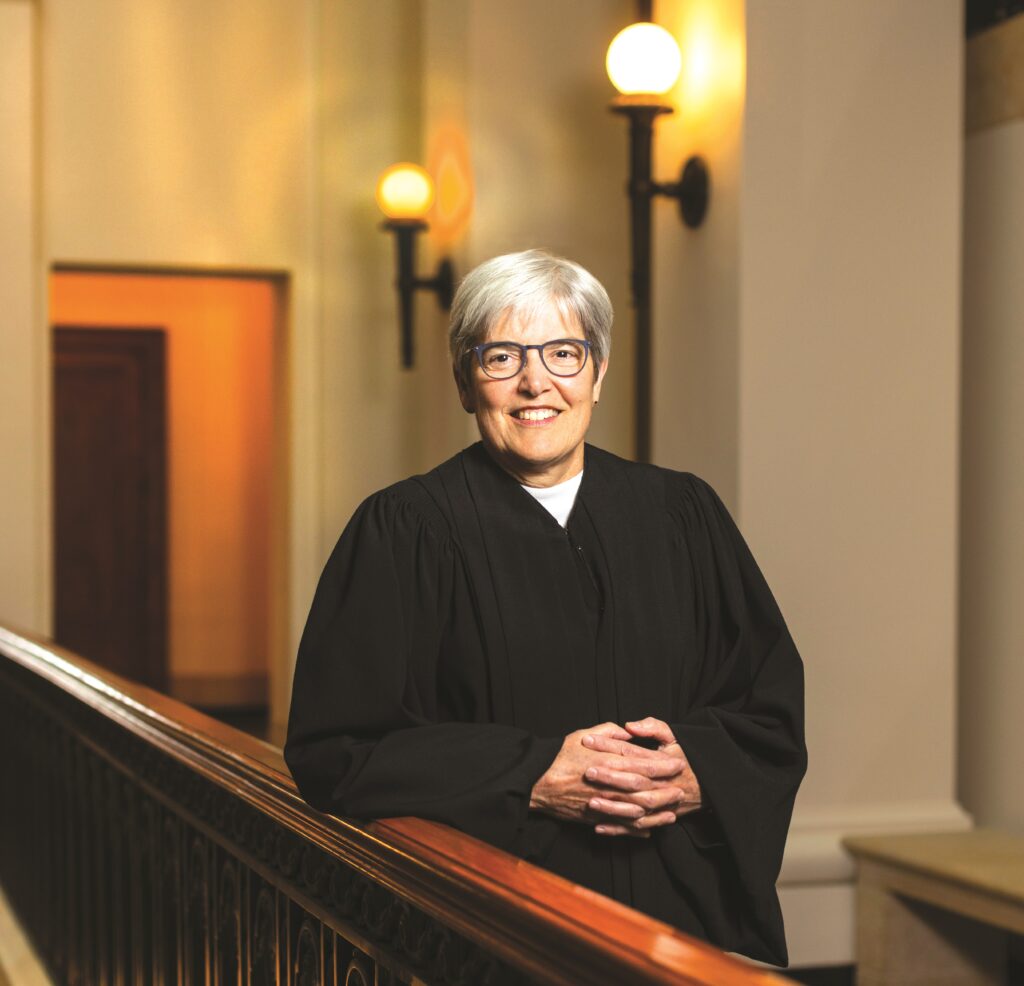At the University of St. Thomas School of Law, our mission puts us at the center of important conversations.
Every law school wants to be relevant, and St. Thomas is no different. What is different, though, is that our mission of integrating faith and reason in the search for truth is a natural impetus for our school to lead the way in identifying and exploring issues that warrant sustained public attention. Our faculty do not base their research and advocacy on what’s already “hot” – they pursue ideas and inquiries that hold promise for advancing the common good. Often their work puts them at the center of the debate that develops.
One example of this phenomenon provides our cover story. Professor Tom Berg has written on the religious dimensions of intellectual property law, and he – working through our Terrence J. Murphy Institute for Catholic Thought, Law, and Public Policy – convened one of the first conferences on the topic several years ago. Last fall, the discussion gained a bigger stage, as the Murphy Institute co-hosted a two-day conference, “Patents on Life: Through the Lenses of Law, Religious Faith, and Social Justice,” at Cambridge University. Participants included top government officials, church bishops, industry leaders and prominent academics. The consensus among participants was that the moral quandaries presented by patents in emerging areas of biotechnology demand the wisdom of our faith traditions. Aside from the global visibility that a Cambridge- St. Thomas partnership brings, it is gratifying to know that, in the process of living out our mission, we helped initiate a crucial conversation.
This law school has also earned a reputation as a leading venue for research, training and dialogue regarding professional ethics. Our Holloran Center for Ethical Leadership in the Professions has been the moving force behind this work, and last fall the center extended its reach to a new audience: state legislators. Professor Hank Shea convened a symposium on ethics for state legislators across the upper Midwest, as detailed in the story, “How Ethical Misconduct Can Morph Into Illegal Wrongdoing.” As recent headlines of scandal attest, it was a long overdue gathering, and hopefully the first of many.
In this issue, we feature these two instances of important public conversations gravitating toward our mission-centered work; there are many more examples:
- Professor Mariana Hernandez Crespo’s work to build more participatory models of dispute resolution through our International Dispute Resolution Research Network has become indispensable in light of the pressing issue of investor-state disputes in the developing world;
- Professor Wulf Kaal’s empirical work on the real-world effects of the Dodd-Frank Act has sparked dialogue with government and industry leaders trying to navigate the line between meaningful reform and unnecessary regulatory burden;
- Professor Mark Osler’s longstanding exploration of the tension between justice and mercy in criminal law has placed St. Thomas in a leadership role in the current efforts to reform the federal clemency system;
- Professor Teresa Collett’s scholarship and advocacy on the sanctity of life has gained new traction with a wider audience in the wake of the controversy surrounding videos suggesting that Planned Parenthood received money in exchange for fetal tissue;
- Professors Neil Hamilton and Jerry Organ have been developing best practices for helping students develop professional identity and values, and through our Holloran Center summer retreats, St. Thomas has become a model for law faculty and staff from across the country.
These and other stories could fill this magazine’s pages many times over. The University of St. Thomas School of Law vision statement commits us, among other priorities, to “participate in the improvement of legal institutions and other organizations.” When we stay true to our mission and vision, we don’t have to go out and search for ways to get involved. The conversations tend to find us.
Read more from St. Thomas Lawyer.





